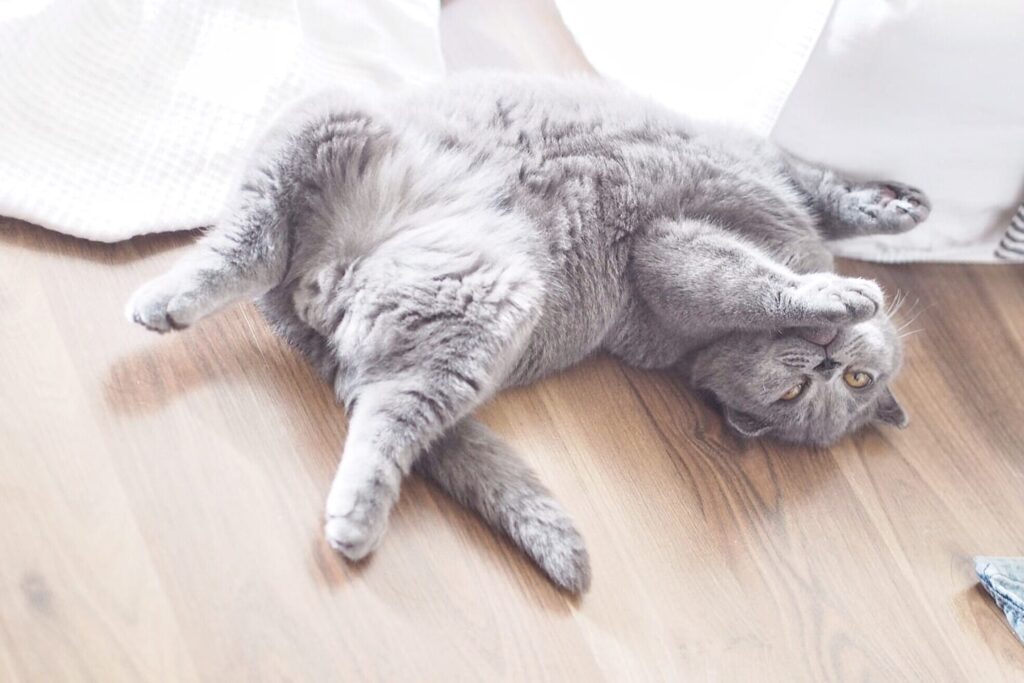Is My Cat Overweight?

How can you tell if your cat is overweight? As a pet owner, it’s easy to be in denial about the dietary habits of our furry friends. You may not even think you have a fat cat until your friends come over and tell you that they are afraid to sit on the couch with a Yeti. Indoor cats don’t get as much exercise as outdoor cats and indoor cat owners tend to “free feed” (leave food out for their cats at all times). As a result, it isn’t difficult for indoor cats to pack on some extra weight, particularly if they get a lot of treats and really like to eat.
Here are some general guidelines to tell if your cat is overweight:
- A yearly exam is essential to your cat’s health. A veterinarian will examine your cat and tell you if they need to lose a pound or two.
- Always follow your veterinarian’s advice and if in doubt, get a second opinion.
- When your cat is lying on his side you should be able to see a visible waistline. When you run your hands alongside your cat, you should easily be able to feel their ribs and bones. If you have to fight your way through the fat to get to a rib, it might be time for a diet.
A good rule of thumb is to feed your cat a high-protein portion-controlled diet. You should be looking for cat food in which the first few ingredients are meat and vegetables instead of corn or fillers.
So what are some things to prevent your cat from being overweight in the first place? Just like most things in life, prevention is key.
- Feed your cat two to three portions of food daily. Avoid leaving out a full bowl of food.
- Feed your cat quality high-protein cat food.
- Add wet food to your cat’s diet. Wet canned food is rich in water and less fattening for your cat. Your cat’s diet should be nearly half wet food.
- Avoid giving your cat table scraps or too many treats.
The first thing you should do if your cat is overweight is change their eating patterns. For example, if you currently leave a bowl of food out, try feeding smaller controlled portions at breakfast and dinner. If your cat is extremely overweight, you may want to consider switching to a lower calorie food. Most brands of cat food are also available in a low-calorie form. Sticking to the same brand will make it easier for your cat’s digestive system to adjust and they’ll find the taste familiar and welcoming.
Remember to seek a veterinarian’s advice when switching your cat’s diet if you have questions.
Here’s to a healthy, happy and nutritionally balanced cat!



